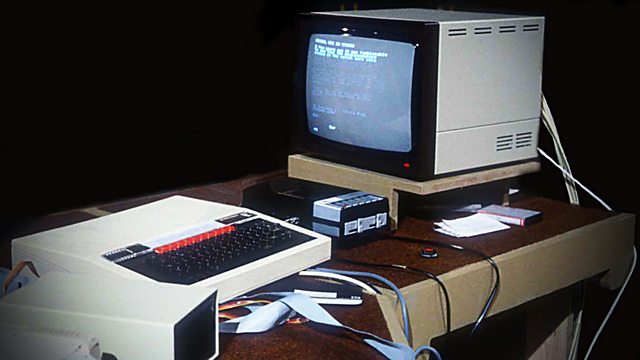Omnibus: 1980s onwards
From the Sinclair ZX Spectrum to the dotcom bubble, Hannah Fry concludes her journey through the history of computing.
In the 80s, computers came to school. The ±«Óãtv Computer Literacy Project was aimed initially at adults, but somehow ended up putting a beige ±«Óãtv Microcomputer in the corner of nearly every classroom in the land.
Meanwhile, 'micro computers' invaded the home. From eccentric electronics genius Clive Sinclair and his ZX80, to smart-suited businessman Alan Sugar and the Amstrad PC, Hannah revisits the 80s computer boom, a time when the UK had more computers per head of population than anywhere else in the world.
Powering this trend was the rise of computer games, often written by teenage coders in their bedrooms. Hannah talks to the Oliver Twins, who created chart-topping titles such as Dizzy, based on the adventures of a lovable egg. Nowadays, bestselling video games have budgets akin to feature films, costing up to £200m to produce. Could today's bedroom coders still write a Number 1 hit?
In the late 1990s, the City went crazy for dot com companies. But in March 2000, the boom went bust. Hannah asks why the dot com bubble burst.
Finally, the story of the little known company in Cambridge that designs and builds the ARM chip, found in almost every mobile device in the world, and the impact it has had in powering the digital age. It also powers the ±«Óãtv Micro:bit, designed to encourage young people to code, just as the ±«Óãtv Micro computer did three decades ago.
Featuring archive from The Science Museum, British Library and ±«Óãtv TV.
Presenter: Hannah Fry
Producer: Michelle Martin.
Last on
More episodes
Previous
Next
You are at the last episode
Broadcast
- Fri 17 Mar 2017 21:00±«Óãtv Radio 4
Podcast
-
![]()
Computing Britain
Hannah Fry reveals the UK's lead role in developing computer technologies we rely on today


